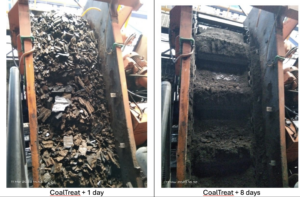 |
 |
Power plants of all types are under pressure to reduce equipment and laboratory testing costs. However, it is critical to test for chloride, sulfate and organics (TOC) in water and steam to meet strict industry guidelines and turbine warranty requirements.
Until recently, measuring these harmful contaminants meant high costs for staffing and lab equipment. Now there is a way to eliminate lab-based measurements. By using on-line ion analyzers and TOC sensors, power plants can reduce costs and improve measurement accuracy at the same time. Typically, on-line analytical systems are significantly less expensive to purchase, calibrate, service and maintain than their laboratory counterparts. In addition, laboratory testing equipment and the methods required to perform the tests, require special training that can be easily lost due to infrequent testing intervals and/or personnel changes. Collecting grab samples from different sample water streams can be time- and labor-intensive while introducing possible human errors that will impact results. These errors can then trigger additional sample collection, leading to further lost time and added work.
As shown in the video below, the METTLER TOLEDO Thornton 3000CS Analyzer uses sophisticated Microfluidic Capillary Electrophoresis (MCE) technology to provide a convenient, dependable method for trace-level chloride and sulfate monitoring.
The 3000CS Analyzer has been developed specifically for on-line, unattended operation. It runs in a semi-continuous mode, taking a sample every 45 minutes. This allows power plants to monitor chloride and sulfate without having to rely on costly and erron prone sampling using an off-line lab method. The 3000CS Analyzer also requires far less operator attention and has lower running costs than both Ion chromatography and Inductively Coupled Plasma analyzers, allowing for better cycle chemistry control, even in plants with limited budgets.
Measuring chloride, sulfate and organics in water means high costs for lab equipment and staffing. Now there is a way to eliminate lab-based measurements. Find out more in our Q&A document.
Q&A document highlights:
- How to eliminate lab-based measurements
- Reduce costs, save time and improve measurement accuracy
Find METTLER TOLEDO on LinkedIn: https://www.linkedin.com/company/mettler-toledo-international-inc
Find METTLER TOLEDO on Facebook: https://www.facebook.com/mettlertoledo








